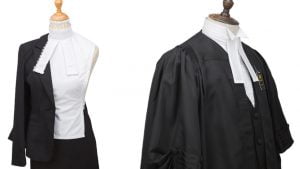What are the problems of the judiciary in Nigeria? The judiciary is one of the three arms of government, conferred with the power to interpret the law in Nigeria. This function of the judiciary is so empowered by virtue of section 6 of the 1999 Constitution of the Federal Republic of Nigeria. Aside the interpretation function, the judiciary is also responsible for settling disputes between the government or between an individual and the government. By doing this, the judiciary is able to do justice when it is to be done.
Nonetheless, looking at the case in Nigeria, it is evident that this arm of government is not performing a majority of its basic functions. There have been several reports of injustice and inappropriate acts of the government and in many of these cases, the judiciary was unable to do anything.
In my view, the majority of the problem is not caused internally by the judiciary. Other factors also contribute to the problem of the judiciary in Nigeria and we are going to look into each and everyone of them in depth today. In addition to that, we will be looking at the composition and functions of the judiciary in Nigeria.

RECOMMENDED: Problems of lawyers and Legal practice in Nigeria.
Composition of the judiciary in Nigeria
In Nigeria, the judiciary is composed of personalities such as, lawyers and solicitors, judges and magistrates as well as courts like, the Supreme court (which is the appex), the court of appeal, the high court, customary court…
The judges are appointed after duly considering their character/reputation, academic and other qualifications since they’re entrusted with the duty of dishing justice to the starving masses.

Also see: Hierarchy of courts in Nigeria
Functions of the Judiciary in Nigeria
1. Interpretation: This duty is apparently the duty to interprete the law.The judiciary interpretes the law of the State to ascertain what acts and omissions are permissible and those that are punishable.
2. Prevention of crimes: The courts carryout this function via the use of writs and it’s restraining powers to prevent further violation of the law.
3. Protection of individual and group rights: A person or group who feel that their rights have been denied or enchroached upon can go to the court to enforce this right.
Example in the case of an individual, the breach might be, trespass to his property and in the case of a group it might be public nuisance in the environment.
The court will grant them the constitutional right of fair hearing as provided in section 36 of the 1999 constution.
4. Power of review: Judges are vested with the power to review some of the activities of the executive and legislative arm of government.
5.Punishment of offenders: When a person is found guilty of an offence, the court is empowered to sanction them in accordance with the provisions of the law in question.
6.Dispute resolution: The court have the power to settle disputes between private citizens and between citizens and the government.

Recommended: How to become a successful lawyer in your jurisdiction of practice
Problems of the judiciary in Nigeria
1. Appointment of judges: In Nigeria, judges are appointed by the executive this automatically creates an unfavourable system of allegiance which they owe and pay to those who appointed them.
Accordingly, the judges are not solely focused on doing justice but in pleasing those who placed them in such positions.
This is infact detrimental to the right and interest of the poor masses whose only hope is the judiciary.
2. Military interference: Military governments have a custom of ousting the jurisduction of the court to the effect that anything said or done by the court is a nullity and in extreme cases, the court does not have a say.
Again, military governments in power promulgate decrees that cannot be challenged thus making a mockery of the supposed powers conferred on them constitutionally.
For instance, a person can not be heard to say that he wants to sue a military government for say, battery committed against his person by certain government officials as opposed to a civil government which can be challenged in court for even the slightest violation of human rights.
3. Insufficient personnel: There are voluminous cases to be heard and decided by only a few judges. A case may persist for years and the parties involved may die, their successors may have to take up the matter and so on.
This invariably leads to unwanted delay in the dispensation of justice and as the saying is common, justice delayed is justice denied.
4. Lack of financial autonomy: This problem is to a very large extent what engineers the unhealthy dependence on other arms of government and control or undue influence from the executive arm especially.
Money to a very grave extent controls alot of things.
“He who pays the piper dictates the tone” and that is the pitiable state of the judiciary in Nigeria.
Also see: How to answer law problem and essay questions perfectly
5. Bribery and corruption: Apart from the activities of other arms of government in silencing justice private individuals who are influential also work their way up the ladder through bribery and corruption, eliminating their perceived enemies in ways that appeal to them and getting away with it through the help of learned judges.
This leads to stunted growth of the economy, lack of faith in the judiciary and a novel but of course foreseeable desire to seek justice elsewhere.
6. Inadequate facilities in courts and tribunals: This is appalling as even the minor things such as proper ventilation is a luxuy that seems unaffordable.
Judges are expected to deliver sane or correct judgements in such unfavourable conditions whether or not this is feasible is discernable by any reasonable man who employs common sense.

MUST READ: Causes, Effects & Solutions to examination malpractice in Nigeria
Recommendations or solutions to the problema of the judiciary in Nigeria
For a better judiciary and in the interest of justice the following should be adopted.
1. Appointment of judges should be a function designated to and carried out by a neutral body solely created for this purpose this is to destroy the custom of allegiance.
2. The judiciary should be autonomous both in writing and in practice this can be done through granting them finiancial autonomy and of course a system of checks and balances should be put in place.
3. Security should be provided for judges both within and outside the court so that judgements will not be given out of fear.
4. Security of tenure must be ensured. Other arms of government should not be allowed to remove a judge.
5. Judges should be politically neutral and should not owe or pay allegiance to any political party to avoid miscarriage of justice.
6. Serene and comfortable court rooms ought to be provided and not a shabby room that is no better than a public convenience.
7. More judges should be appointed by the neutral committee to facilitate judgements and uphold the right to fair hearing which is often jeopardized by undue delay.
Also see: Characteristics of the fundamental human rights
Having discussed the problems of the judiciary in Nigeria and some solutions, it is my view that a viable and more responsible judiciary ought to be and can infact be created in Nigeria if only this is truly desired not just by the people but also the leaders. With collective effort, a Nigeria of our dreams where justice is the watch-word can be birthed.

Edeh Samuel Chukwuemeka, ACMC, is a lawyer and a certified mediator/conciliator in Nigeria. He is also a developer with knowledge in various programming languages. Samuel is determined to leverage his skills in technology, SEO, and legal practice to revolutionize the legal profession worldwide by creating web and mobile applications that simplify legal research. Sam is also passionate about educating and providing valuable information to people.
